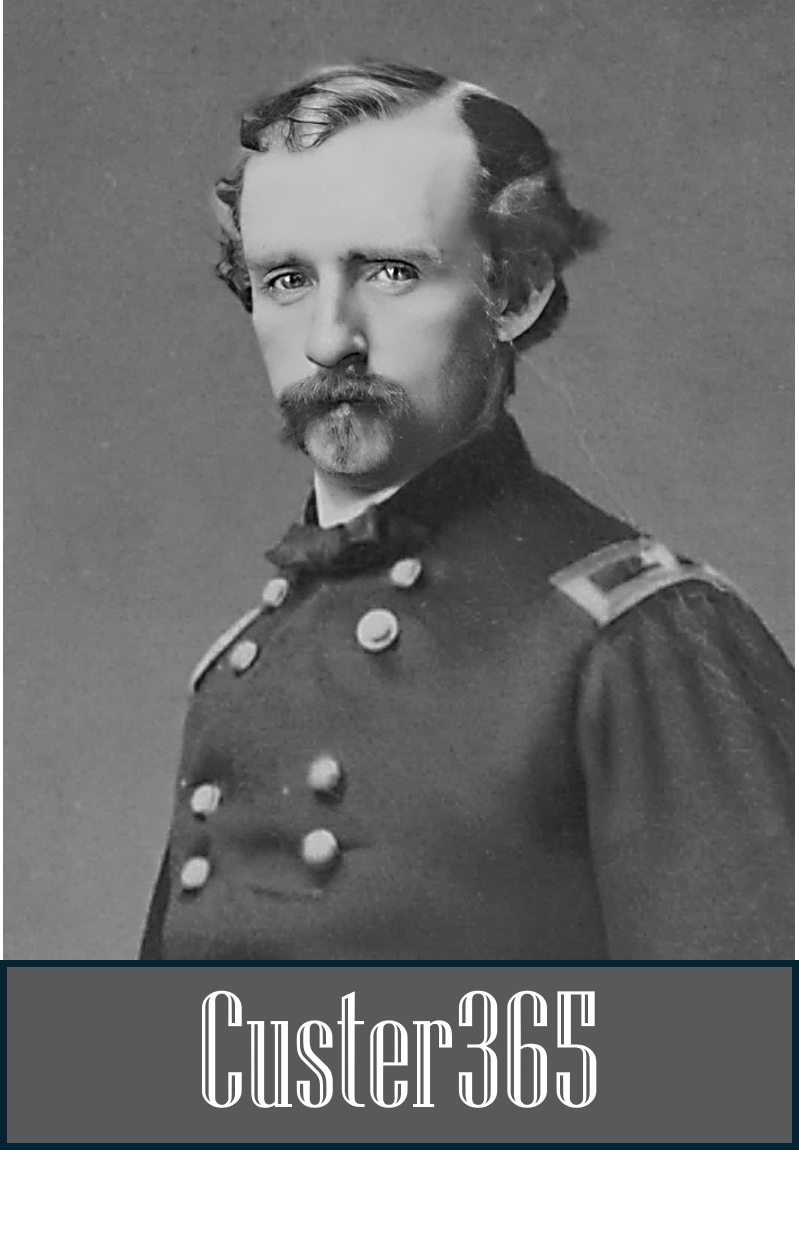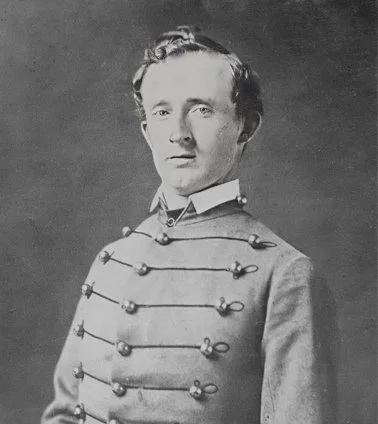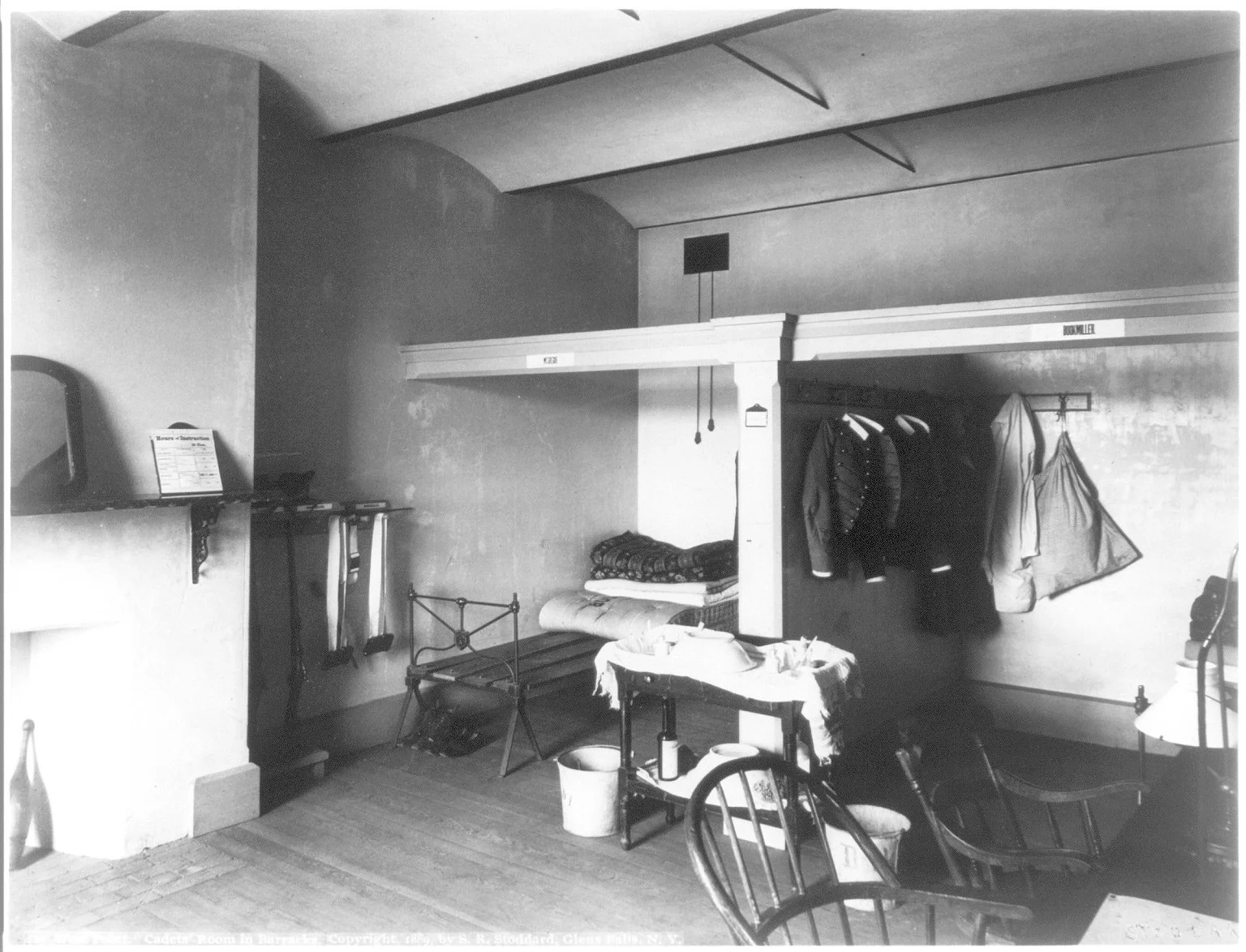JULY 1: Custer Enters West Point
George Armstrong Custer enters the United States Military Academy at West Point as a cadet on July 1, 1857 and is a member of the class of 1862. With the outbreak of the Civil war in April 1861, the five-year course of study was shortened to four.
Custer was noted for his horsemanship. One claim holds that the only other cadet equal in equine handling skills was Ulysses S. Grant (class of 1843.)
West Point Cadet George Armstrong Custer, class of 1862.
(Credit: Library of Congress)
Custer was also renowned for the high number of demerits he accumulated during his time at West Point. Demerits were part of a system of disciplinary action taken for violating rules and regulations. Cadets earned demerits for infractions such as being late, having a messy uniform or being out of bed after “taps”. Custer had a canny ability to accumulate a significant number of demerits, then bear down just in time before being removed from the Academy.
Custer graduated last in his class of 34 in 1861, earning the distinction among classmates as “the Class Goat.” (Not to be confused with today’s “Greatest of All Time.”)
Custer’s journey to the United States Military Academy began in spring 1856 after he graduated at the age of 16 and received a teaching certificate from McNeely Normal School in Hopedale, Ohio. (It later became the first co-educational college in Eastern Ohio under the name of Hopedale Normal College.) Custer remained in Ohio and began teaching in Cadiz, about 60 miles west of Pittsburgh.
One recounting of Custer’s days teaching at a one-room schoolhouse in Ohio claims he had a dalliance with Mary Jane Holland, daughter of the owner of the boarding house Custer lived at in nearby Athens Township. When Mary’s father discovered the romance, he told Custer to leave immediately. Custer relocated, but kept up his affair with Mary, declaring his love in letters and poems. One read:
“To Mary,
I’ve seen and kissed that crimson lip
With honeyed smiles o’erflowing.
Enchanted watched the opening rose,
Upon thy soft cheek glowing.
Your true and faithful Lover,
Bachelor Boy”
Custer sought entry into West Point, but that required a Congressional appointment. The local Congressman was a staunch Republican and Custer’s father, Emanuel, was an equally dedicated Democrat. It turns out Mary’s father, an influential Republican in the county, leant his support to the effort and George was eventually admitted to West Point, which was situated nearly 500 miles to the east.
Custer the Plebe
The nickname for a first-year cadet at West Point in 1857 was a "plebe". This term has been used at West Point since at least 1833 and is likely derived from the Latin word "plebeian," which referred to the lower class of ancient Roman society. At West Point, it signifies the freshman or fourth-class cadet, who is at the lowest rank in the Corps.
A cadets’ room in barracks at West Point (circa 1889.)
(Credit: Library of Congress)
In 1867, first-year cadets at West Point participated in Cadet Basic Training, which included spending the summer in the field. This training, also referred to as “Best Barracks”began upon their arrival in late June or early July and lasted until the start of the academic year. This period involved intense physical and military training to prepare them for their studies and military service.
Learn more about the importance of Plebe Year at: https://www.westpoint.edu/cadet-journey



